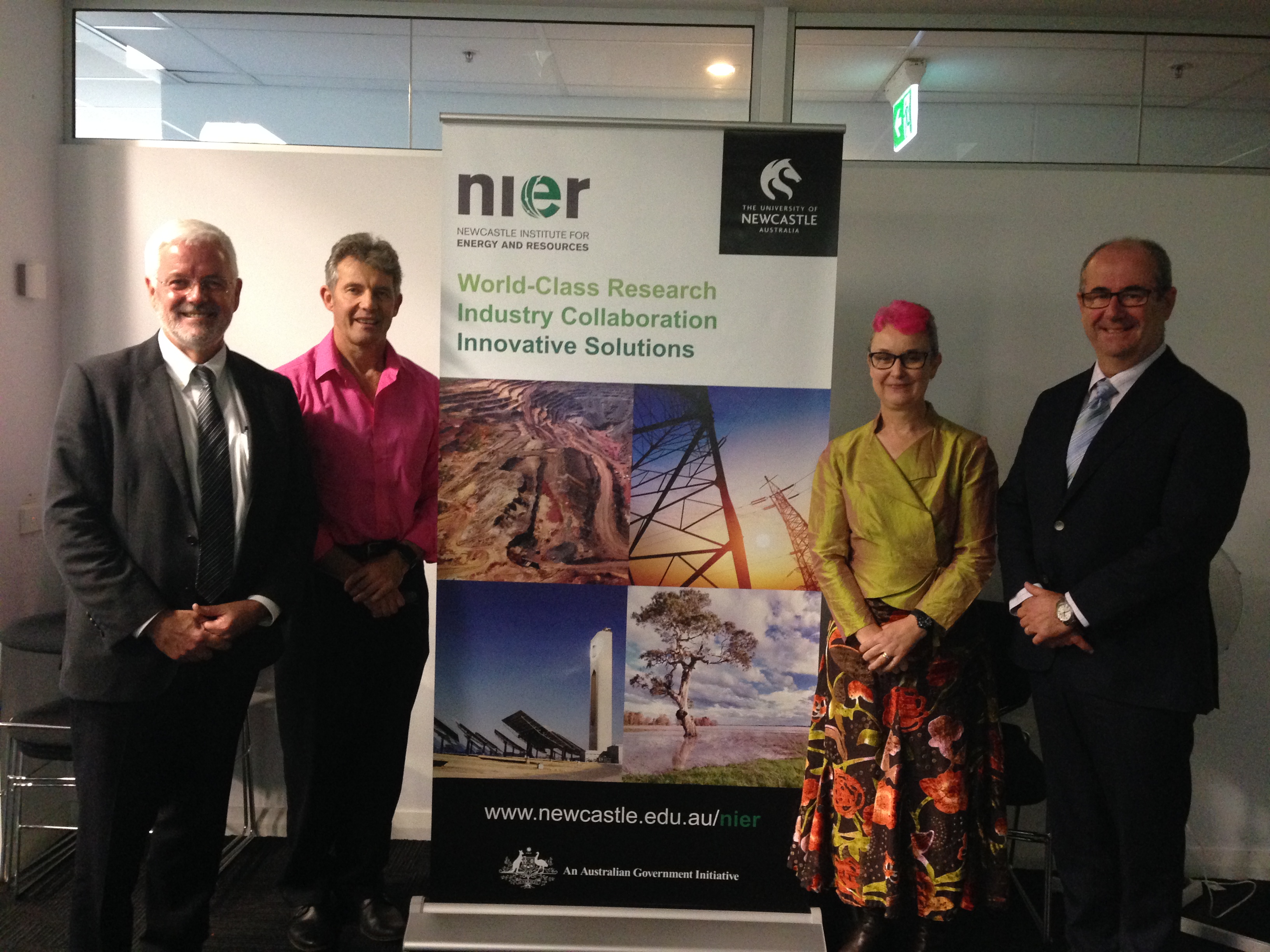
Researcher Showcase
The 
The CRHS is very grateful to those who attended and supported the event, and particularly to the speakers who presented some of the fantastic research they are undertaking. The presentations at the forum included:
- A/Prof Carole James (Associate Director, The Centre for Resources Health and Safety) – Defence Health Foundation grant and PhD - The CRHS team, in partnership with Aspen Medical were awarded a Defence Health Foundation grant to deliver an online, evidence-based treatment program for mental health and alcohol use in contemporary Veterans. A PhD student will also be coming on board with the CRHS to explore this topic further.
- A/Prof Anthony Kiem (Centre for Water, Climate and Land) – Extreme Events - Quantifying the human health and social impacts of drought and flood and identifying and assessing adaptation options for dealing with the human health and social impacts of drought and flood.
- A/Prof Mark Rubin (School of Psychology) – Risk and Safety - ACARP research project on risk taking by Australian miners. Surveying more than 1,000 open-cut and underground miners from Queensland and New South Wales will hopefully shed light on factors that predict conscious and unconscious risk taking at work. The second phase of the project will involve the design and implementation of interventions aimed at preventing workplace injury.
- Prof Alan Hayes (Director, Family Action Centre) – Community Development and Change - The Muswellbrook Strong Families - Capable Community Initiative; implements a Collective Impact approach to demonstrate its utility in a community facing structural economic change and extend the evidence-base before larger-scale implementation. The research leverages the University’s expertise in social sciences, health, family studies, integrated health and community services.
- Dr Kate Davies (Post Doctoral Research Fellow, Centre for Rural and Remote Mental Health) – Mental Health Services Change - The Centre for Rural and Remote Mental Health demonstrates strong connections between research, practice and policy. It highlights the importance of collaboration and puts a spotlight on rural and remote mental health issues. In 2015, the Australian Government responded to a review of mental health programs and services which included localisation of mental health service planning and funding via primary health networks, moving from one-size fits all to a stepped care model and better integration and coordination of youth mental health service.
- Dr Thayaparan Gajendran (A/Prof School of Architecture and Built Environment) – CIFAL Newcastle - The Centre International de Formation des Autorités et Leaders (CIFAL), Newcastle’s core mission is to build the capacity of cities and communities through education and training that effectively addresses development challenges and reduces disaster risk. CIFAL Newcastle is a part of the CIFAL Global Network which consists of 16 CIFALS spread across the globe.
- Dr Trent Watson (Conjoint Senior Lecturer, School of Health Sciences) – Reshape healthy weight initiative - Working in collaboration with NSW Mining to develop a sustained approach to fostering healthy and productive workplaces that support the prevention and management of overweight and obesity. The next steps of this initiative include conducting state-wide workshops to introduce the blueprint how-to guide and build action plans around the interventions of the initiative.
The research showed some beneficial synergies with Aspen Medicals work which includes medical evacuation, primary healthcare support, e-medicine, pre-employment and medical assessment, drug testing, and response to remote and challenging environments and extreme climatic variations.
The University of Newcastle acknowledges the traditional custodians of the lands within our footprint areas: Awabakal, Darkinjung, Biripai, Worimi, Wonnarua, and Eora Nations. We also pay respect to the wisdom of our Elders past and present.
